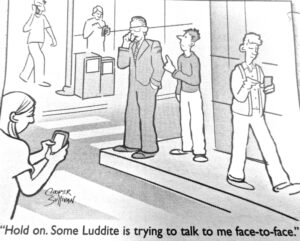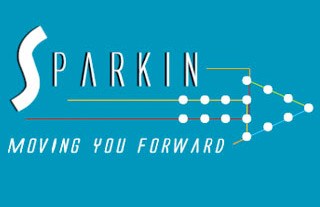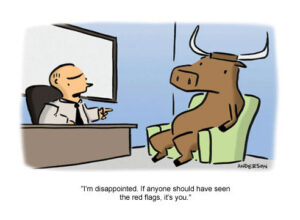Adaptability the Key to Success 2018 and Beyond?
A 2017 report by talent experts Right Management highlighted 91% of HR managers thought that by 2018 individuals would be recruited for their ability to change/adapt. Meanwhile, 53% of employees believed that adaptability would be a key driver for success. Some discrepancy.
______________________________________________________________________________________________________________________________________________________________________
‘It is not the strongest or the most intelligent who will survive, but those who can best manage change.’ (Darwin)

______________________________________________________________________________________________________________________________________________________________________
- Do employees truly underestimate the importance of adaptability or, do they believe other factors (such as intellect and emotional intelligence are more important?)
- The trend for full time roles continues to point to ever shorter tenure in advertising/marketing. The average employ of a CMO whilst up to 44 months in 2017, bucked a ten-year decline prior to last year (Market Technology Insights 3/28/18)
What might exacerbate this further?
i) Corporate needs – Budget pressures point to constant change and push toward flexible work contracts.
ii) Employee preferences – Flexi-work hours/job variety, which many want, provide flexibility, but the but also create much greater complexity/juggling of tasks.
iii) Rapid Technological innovation will continue – Moore’s Law refers to the doubling every two years of the volume/capacity of computer chips, which will make everything move even faster, further challenging business and employees to adapt.
What do you think?
Adaptability = Career Success?
A 2017 survey suggests that, all other factors remaining constant, hiring will place a much greatter emphasis on your adaptive ability as a means of determing whether you get hired. The report by talent experts Right Management, highlighted that by 2018, 91% of HR managers thought that one of the primary considerations in hiring individuals would be based on their ability to change. Meanwhile, 53% of employees believed that their ability to deal with change, or their adaptability, would be key for for future success. What might explain this discrepancy?
‘It is not the strongest or the most intellient who will survive but those who can best manage change.’ Charles Darwin
Alessandra and O’Connor in their book ‘The Platinum Rule,’ suggest that adaptability consists of two aspects, ‘flexibility’ or our willingness to change and ‘versatility,’ our ability to change. Perhaps the latter points more to experience and intelligence?
Flexibility, refers more to your willingness to pivot or, to focus your energy/ability to embrace rather than resist change. It is this ‘ability’ of acceptance, the degree to which you are more a ‘cup half full’/optimistic type, which may well explain who actually adapts best. If this is true then expect to be tested for your optimism quotient or ‘OC’, at a job interview in the near future.
What do you think?
Articles and commentary that might be of interest…
- Adaptability is
- Is it possible to hire for adaptability?
- Why learning adaptability will matter in the future workplace
- Adaptability – The new competitive advantage
- Success – The biggest benefit to being adaptable
- 14 Signs of an adaptable person
- Adaptability and Flexibility
- The Seven Skilsets Employers Want
Increasingly It Is Your Adaptability That Will Determine Your Success
Neophilia or ‘to like anything new’, might be something we can all relate to dependent on the context. New places to visit, new foods to eat, all good when they expand who we are, sometimes literally!
But what about new things or circumstances when there is much more at stake, such as new management or new systems at work which may impact our job security? Perhaps a Luddite after all?
What’s typical, most of us don’t like uncertainty, when the stakes are high, when we have much to lose.
Should we even care about how adaptable we are unless we are explicitly assessed for it when seeking employment?
A 2017 report by talent experts Right Management highlighted that 91% of HR managers thought that by 2018, individuals would be recruited for their ability to change/adapt. Meanwhile, 53% of employees believed adaptability, would be a key driver for future success. What might explain this discrepancy? And, given the stated direction of HR managers, what are the keys to you and those you care about developing effective adaptive capability?
‘It is not the strongest or the most intelligent who will survive, but those who can best manage change.’ (Darwin)
First we need to understand adaptability or, ‘the nature of changing or creating modification in oneself to suit a new environment.’
Alessandra and O’Connor in their book ‘The Platinum Rule,’ suggest adaptability consists of two aspects, ‘flexibility’ or our willingness to change and ‘versatility,’ or our ability to change. Perhaps the latter points more to experience and intelligence (IQ) and emotional (IQ) that people believe they possess in sufficient quantity.
Flexibility however, refers more to your willingness to pivot or, to focus your energy/ability to embrace rather than resist change. It is this ‘ability’ of acceptance, the degree to which you are more a ‘cup half full’ optimistic type, which may well explain who actually adapts. If this is true then expect people to be talking much more about optimism quotient’s, or ‘OQ.’
From a personal perspective, having clear options moving forward post-change, (internal or external) which whether exercised or not, can enhance our state of mind, can make us feel less trapped by a changing situation and therefore better able to adapt.
Arguably those with foresight, do and continue to plan for change, anticipating what might happen and prepare themselves accordingly, but not everything can be planned for.
And, even if we did anticipate, is planning and recognizing the same as the ability to actually cope and proactively adapt to change, particularly when it is sudden.
What do you think?
For more information on this subject see the newsletter on the subject https://bit.ly/2ExHOGj and past newsletters too. Feel free to sign up for future letters.
How to positively manage the effects of sudden changes in a new job
I regularly receive calls that talk to an individual having started a new job and a few months in, it is unrecognizable from expectations, not simply because of a changed challenge but in terms of what was promised about people, the value of their expertise in the agency/company, the culture, resources, leadership and clients. The boss that hired you leaves, the client it turns out is completely unreasonable and/or not embracing the value your expertise can bring and/or, the function you represent period, for example strategic planning. And, the department of which you are a part, doesn’t seem to have any practical leadership. These are just a few examples of challenges I’ve heard someone newly employed describe to me as they asked what they should do.
Now, it’s true, situations in the agency and business world can and do change very quickly. The role you were hired for can become manifestly different. Where you confront such a situation in a new role (1-3 months) you should ask yourself the following three questions:
Is the change significant enough that you believe you cannot be effective in the new role?
Can you through discussion alter the changed circumstances so that you can be effective?
Is there an opportunity for professional progression/a chance to develop your expertise even with the changed circumstances?
If the answer to all the above questions is “no,’ you should leave the role. If you take no action you are very likely going to go around in circles as you fail to direct your career. A better approach, whether you leave depends on rationalizing a course of action based in my opinion, on three factors: Your sanity; Your reputation; Your resume.
Sanity
More important than your reputation or resume is your state of mental health. Being in a situation for which you are unprepared, unsuited or simply don’t desire can adversely affect your mental state of mind. Extreme stress arises due to a complete lack of support or from a role or circumstances significantly different from those you believed you were being hired for. In such a situation if you cannot, even after talking with someone you trust, get clarity or assurance that the job you are being asked to perform will, in some timeframe align with that that you were hired for, then you should seriously consider leaving the agency.
Reputation
Whenever you are delivering a product or service you have been paid to deliver, the consistency and quality of that delivery is what your reputation is in large part based. Clearly other people’s perception of you are based on other factors too significantly, being seen to be easy to work with/cultural fit. A positive/can do attitude is the ally of a great reputation but even that is not enough if the quality and consistency of your work is not up to par. So whenever there are persistent factors that are out of your control and you cannot resolve, that will materially affect the consistent quality of your work, that would also be a reason either to change your current role with your current employer or to leave. Your reputation takes time to build but it can be damaged very quickly. You cannot afford to persist with anything that damages your ability to be the best you can be.
Resume
I’m often asked, even when an individual is unhappy and is struggling in their new role, ‘Should I stay another six months?’ I’m being asked this question even though there are no obvious concerns about mental health or loss of reputation that is, they can do the job but they are not happy or motivated by it. They are considering leaving their job but hesitating because of how this might look on their resume, their leaving a job after a short period of time. Clearly, if you have left your last two jobs within six months it becomes more important to prove you can commit. The question also arises whether the individual is simply ‘unlucky’ in their job selection or failing to properly qualify the jobs they are subsequently accepting. Irrespective, if what’s at stake is your state of mental health or reputation for delivering great work, these are compelling reasons for change, irrespective of how your resume looks.
Avoiding the Perfect Storm = A sudden loss of your job without any preparation to get the next one..
A Sinking Ship
It’s the middle of the night and you are awoken to a shrieking alarm piercing the beautiful world that your dreams had transported you to. Brutally torn in to consciousness, you need to get out of the cabin and on to the deck. It’s dark, you are three decks down and for all you know the ship is sinking and this is not a drill!
Approaching the end of the financial year can be a very uncertain time for agency employees, as agencies desperate to make their numbers, cut the only meaningful costs, payroll. What can you do to mitigate this uncertainty?
Life can sometimes send us a perfect storm and we should anticipate the possibility by preemptively ensuring we are able to jump to another ship. Anticipation will ensure the other vessel is a yacht sailing quickly in to calmer and more prosperous waters, versus another sinking ship!
Preparing to Evacuate – Fire drills make sense
Don’t wait to make connections with other agencies and businesses; Don’t wait to have an up-to-date resume; Don’t wait to be engaged with social media, building your own reputation. And certainly don’t wait to be building specific expertise and achieving meaningful results. When you finally decide it’s time to move from your current job, be prepared in the only way you can be, leave from a position of strength. Don’t leave it until you’re desperate, until the alarm bells are ringing rather, plan ahead and, have a clear sense of what it is you are looking for. Anticipate that there could be an emergency and avert its effects because of you preparedness.
The whole idea of ‘on-going preparedness,’ covered in my previous article, ‘Mitigating Risky Career Maneuvers’ aimed to address. (The idea of actively every day preparing yourself for your next role.) https://www.linkedin.com/pulse/mitigating-risky-career-maneuvers-stuart-parkin?trk=prof-post
Significantly, even if you are prepared to leave one ship for another, you then need qualify information in order to make a fair assessment as to whether an opportunity (or ship) in front of you is the best one for you.
How to gain a true sense of the opportunity?
When somebody is desperate to hire you, be mindful that they will, whether they know it or not, try to ‘sell’ you and therefore, may be tempted to tell you what you want to hear.
Equipped with a sense of what role and circumstances will make for a great professional progression, your challenge is to ask questions which do not alert the interviewer to the information you need objective answers to.
Can I be successful in this role?
To understand whether you can be successful in a new role requires an understanding of culture, leadership style, agency goals, team, strategic style and the resources and timeframe you will have to deliver. And if working on an account, the state of the account and why the role exists for which you are being hired. You should have a clear sense of the value associated with your core skills in the new agency.
Which questions help me to truly qualify the opportunity in front of me?
So, what types of questions help you evaluate the opportunity for your next career step: Some good ones include:
Who does the agency regard as its main competition? = what type of work is ‘really done’
How does the agency primarily derive its revenue? = What is the real channel focus here?
What type of work is most celebrated here? = Creative, strategic, cost saving?
What characteristics do successful people here exhibit? = What/Who is valued?
Why is your agency successful? = What defines success here?
What is the biggest anticipated change expected here in the next year? = Gives the interviewer a chance to inform you about pending leadership, client or organizational changes.
What does a successful 2016 look like for the agency? = How ambitious are people here?












